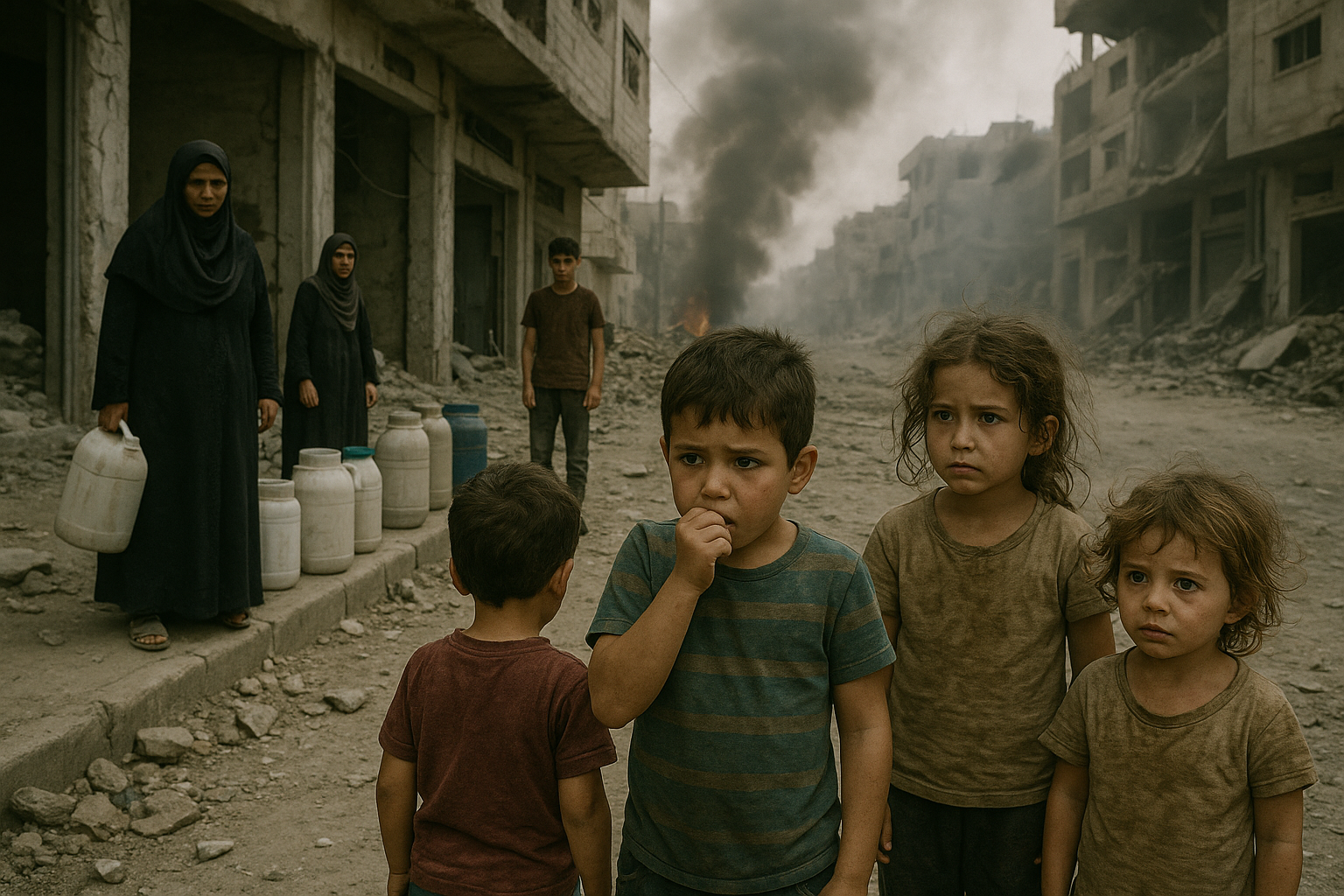Gaza Starvation Crisis Deepens as Humanitarian Access Remains Blocked
“Images of people starving in Gaza are heart-rending and intolerable. That we have reached this stage is an affront to our collective humanity,” said one UN official.

The world has watched in anguish as images and reports emerge from Gaza showing a humanitarian catastrophe—children and adults alike suffering from acute hunger and malnutrition amid ongoing conflict and severe restrictions on aid. International outrage is mounting, with global leaders, human rights organizations, and humanitarian agencies calling for an immediate end to the violence and urgent action to avert further suffering and loss of life.
Humanitarian Access Severely Restricted
Despite dire need, Israel continues to impose stringent limitations on humanitarian aid entering Gaza. According to multiple aid agencies, the amount of relief permitted through is a fraction of what is required to address the escalating crisis. Food, medical supplies, fuel, and clean water are in desperately short supply, and humanitarian convoys are routinely delayed or blocked, leaving relief organizations unable to reach those in greatest need.
“Images of people starving in Gaza are heart-rending and intolerable. That we have reached this stage is an affront to our collective humanity,” said one UN official. “Saving lives must be everyone’s priority.”
The United Nations and partner organizations warn that unless Israel immediately allows the rapid and unimpeded passage of sufficient amounts of humanitarian relief, further unnecessary suffering and preventable deaths are inevitable. Under international law, deliberately denying civilians access to food and essential relief may amount to a war crime and possibly a crime against humanity.
The Plight of Hostages and Detainees
While the humanitarian crisis deepens, new videos released by Palestinian armed groups showing emaciated Israeli hostages have shocked the global public. The humiliating and degrading treatment of these hostages has sparked universal condemnation and demands for urgent intervention.
“I am appalled by their treatment,” said a human rights representative. “They should be granted immediate access to medical assistance and the International Committee of the Red Cross (ICRC) must be allowed to visit them without delay.”
International law is unequivocal: all hostages and individuals arbitrarily detained must be released unconditionally and without delay. During detention, they must be treated humanely and never exploited as bargaining chips in negotiations.
Legal and Moral Responsibilities
The ongoing crisis in Gaza has also placed renewed scrutiny on the responsibilities of third-party States. Governments around the world are being urged to avoid any involvement that could contribute to violations of international law by any side in the conflict. Instead, they are being called upon to use every means at their disposal—diplomatic, political, and economic—to prevent and end such violations.
“Third States must refrain from contributing to violations of international law committed by any party to the conflict. They must use all possible leverage to prevent such violations and bring them to an end,” reiterated the official.
The Toll on Civilians
For Gaza’s civilians, daily life has become a struggle for survival. Food insecurity is at critical levels, especially among children, the elderly, and those with chronic illnesses. Health services have collapsed under the strain of ongoing hostilities, while shelters are overcrowded and lack even the most basic necessities.
Humanitarian organizations warn that if the current restrictions on aid and movement persist, the risk of widespread famine and disease outbreaks will only grow. The psychological toll, particularly among children and those separated from family members, is immeasurable.
The International Call for an End to the Violence
As the crisis intensifies, voices from around the globe are calling for an immediate ceasefire and unfettered humanitarian access. There is a growing consensus that only a political solution that ends the cycle of violence can restore hope and dignity to the people of Gaza and ensure the safety and rights of all civilians, including hostages.
In the words of a humanitarian leader: “We must not stand by as an entire population faces starvation and despair. The violence must end, and the international community must act now to save lives and uphold our shared humanity.”
ALSO READ
Elderly Couple's Battle: Human Rights Commission Intervenes
The UK, France and 23 other countries say the war in Gaza 'must end now' and demand Israel comply with international law, reports AP.
British Couple's Plight in Afghan Detention: A Battle for Human Rights
ICC Convicts Leaders of Christian Militias for War Crimes in CAR
In hard-hitting human rights address, Guterres calls for urgent action on Gaza, authoritarianism and climate justice









